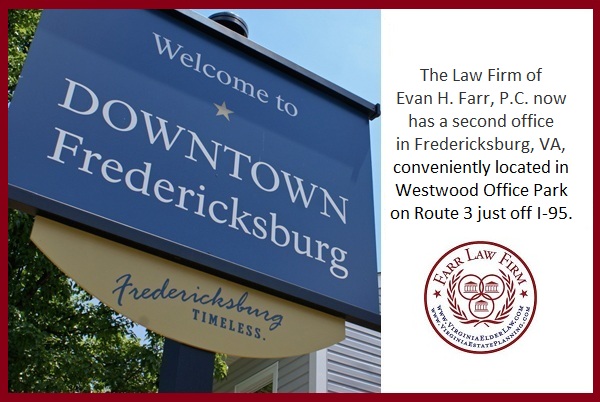Ask the Expert: Will a Life Insurance Policy Affect my Mother's Medicaid Eligibility?
Published: Fri, 09/06/13
|
|
|
 | |
|
Ask the Expert: Your Elder Law Questions Answered by Evan H. Farr, CELA |
|
Ask the Expert: Will a Life Insurance Policy Affect my Mother's Medicaid Eligibility?
 Q. My mother never thought about life insurance until later in life. Ever since her friend Theresa died without it, she has been insistent about getting a policy for herself. She is weighing her options and hasn't decided between "term" or "whole" life insurance. She has an extensive family history of diabetes and Alzheimer's. If she needs long-term care down the road, would purchasing life insurance now disqualify her from being eligible for Medicaid in the future?
A. Life insurance can be problematic when attempting to qualify for Medicaid. Currently, to be eligible for Medicaid, an individual cannot have more than $2,000 in countable assets. You mentioned that your mother hasn't decided between "term" or "whole" life insurance. If a Medicaid applicant has term life insurance, it doesn't count as an asset and won't affect Medicaid eligibility because this form of life insurance does not have an accumulated cash value. Term life insurance is purchased for a specified term and remains in effect as long as the premiums are paid each month. However, if she decides on term life insurance and is approved for Medicaid down the road, it may be difficult to pay the monthly premium for the insurance since a Virginia resident can only keep $40 of their income each month while on Medicaid. If this becomes the case, she could either transfer ownership of the term life policy to someone else if that person is willing to make the payments on the policy, or cancel the policy altogether. If she decides to transfer the policy or keep paying the premium each month, she should pay careful attention to the beneficiary designation on her policy. If her estate is listed as a beneficiary, Medicaid can recover their costs from the proceeds of the policy upon her death. Whole Life insurance, on the other hand, offers level premiums and life insurance protection for as long as your mother lives, provided that premiums are paid as required to keep the policy in force. These policies will charge her a fixed premium each year, one that's typically higher than term insurance. The advantage of whole life insurance is that, while part of the premium covers what term insurance would cost, the excess resides in an account that pays interest and accumulates a cash value. As this "accumulation account" grows, your mother's premiums can decrease over time. Eventually, in some cases, the interest earned can pay the premiums for her. So she won't be paying any more premiums, but she'll still be covered for the rest of her life.
For Medicaid, if a person owns whole life insurance with a face value of less than $1,500, this is considered exempt and will not count against that person's $2,000 Medicaid resource limit. Besides this one small exception, all other whole life insurance policies owned by a Medicaid applicant that include cash value are countable assets to that individual and will count toward that person's $2,000 Medicaid resource limit. For example, suppose your mother has a whole life insurance policy with a $1,500 death benefit and a $700 cash surrender value (the amount she would get if you cash in the policy before death). The policy is exempt and won't be used to determine her applicant's eligibility for Medicaid. However, if the death benefit is $1,750 and the cash surrender value is $700, the cash surrender value of $700 will be counted toward her $2,000 asset limit. If your mother purchases a life insurance policy that may disqualify her from Medicaid, she has a few options. Before making any decisions, she should consult with a Certified Elder Law Attorney, such as Evan H. Farr, for appropriate and compliant spend-down strategies. She could:
Most people are aware that, in order to qualify for Medicaid benefits, an applicant must meet strict state-imposed income and resource restrictions. The handling of life insurance policies is just one facet of Medicaid qualification. A Certified Elder Law Attorney such as Evan H. Farr can help your mother design and implement a personalized comprehensive plan for Medicaid qualification. To discuss strategies specific to her situation, your mother should call 703-691-1888 to make an appointment for a no-cost consultation at The Fairfax Medicaid Protection Law Firm of Evan H. Farr, P.C. ------
  Dear Baxter,
I heard that there are new HIPAA rules that will go into effect at the end of September. Can you tell me a little more about this? Max E. Mumm-Pryvasee ------ Dear Max, HIPAA is a federal law that, among other things, requires healthcare providers to take steps to ensure the confidentiality and security of protected health information when it is transferred, received, handled, or shared. This means that hospitals and other healthcare providers are required under HIPAA to limit who has access to your confidential healthcare information including limiting access to loved ones. Patients will have significantly more privacy protections and greater access to their medical records under new regulations issued by the U.S. Department of Health and Human Services. The rules are intended to modernize the operation of HIPAA for today's record-keeping environment, in which increasing amount of medical information are stored in digital format. Medical providers have until Sept. 26, 2013, to come into compliance. The rules provide more severe penalties for providers who breach privacy; require the encryption of data; tighten controls on the personal health data that may be shared or sold for marketing or fundraising purposes; compel notification of patients if a breach of their data has occurred; and extend the regulations to any vendors or business associates who may have access to a medical providers' patient health records. From a patient's perspective, the following changes will be the most notable:
A HIPAA Authorization form enables certain trusted family and friends - those that you select -- to have access to your medical records and health information when you are physically or mentally incapacitated. At The Fairfax Elder Law Firm of Evan H. Farr, our clients always sign a HIPAA Authorization as part of their Incapacity Planning that allows the release of medical information to their Agents, Successor Trustees, and family members and other persons whom you designate.
More information about the new HIPAA rules is available at US Dept. of Health and Human services website. Nearly 22 percent of the U.S. population (65 million Americans) are disabled, and many haven't signed the HIPAA Authorization or the other Incapacity Planning documents needed to protect their loved ones. Everyone should have a plan in place. Call The Fairfax Elder Law Firm of Evan H. Farr, P.C. at 703-691-1888 to make an appointment for a no-cost consultation. Arf Arf, Baxter About Baxter: Baxter is a 2-year old terrier mix (mutt) that belongs to Justin Cohee and his girlfriend Ashley. He was originally a stray, but was found by a family in Frederick, Maryland who brought him to the local animal shelter. He loves attention and has a lot of energy and can jump up to Justin's nose (Justin is 6'4). He loves to go on runs and hikes as well. Despite his energy, he is a cuddler and frequent napper, often to the discomfort of others. At night he either sleeps at Justin's feet or climbs atop a mountain of pillows and makes a nest where he eventually rests with his paws on Justin's face. |
| ||||||||
|
|
Unsubscribe to this Newsletter |









